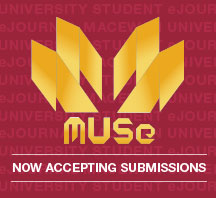Increasing Enrollment in MacEwan University’s Co-op Program for Marketing Majors
DOI:
https://doi.org/10.31542/61yt2533Abstract
The study aimed to identify barriers to enrolling in the marketing cooperative education program at MacEwan University and to develop strategies that encourage higher enrollment among marketing majors. Research focused on understanding student perceptions and the effectiveness of current enrollment initiatives, including the primary reasons for their low participation. The research design targeted non-co-op Bachelor of Commerce marketing students, employing a probability sampling method to ensure a representative sample.
Major findings indicate that a higher likelihood of recommending the co-op program correlates with better knowledge of program details, suggesting that increasing awareness could boost interest. However, the impact of current advertisements on program recommendation is low, indicating the need for improved marketing strategies. Students preferred receiving information through emails and in-class presentations, which are deemed most effective. Despite some support for mandatory work-integrated learning, there is ambivalence toward making the co-op program compulsory, signalling a need for further exploration.
Based on these findings, the study recommends establishing partnerships with local businesses for part-time co-op placements to avoid extending graduation timelines. Additionally, it suggests integrating co-op program information and promotional activities into relevant courses to enhance visibility and stimulate student interest. Another recommendation is allowing students to count co-op placements as elective credits, aligning practical experience with academic and career goals.
References
Downloads
Published
Issue
Section
License
Copyright (c) 2024 McKenna Down, Ashley Reid, Mercedes Lam, Denise Berry

This work is licensed under a Creative Commons Attribution-NonCommercial 4.0 International License.
By publishing works in MUSe, authors and creators retain copyright under a Creative Commons Attribution NonCommercial (CC BY-NC) license, which allows others to share these works for non-commercial purposes as long as credit is given. The MUSe Editorial Board reserves the right to make copy-editing changes to works prior to publication to ensure they conform to the publication's style and quality standards. The Editorial Board also reserves the right to archive published submissions in MacEwan University's institutional repository, RO@M.



